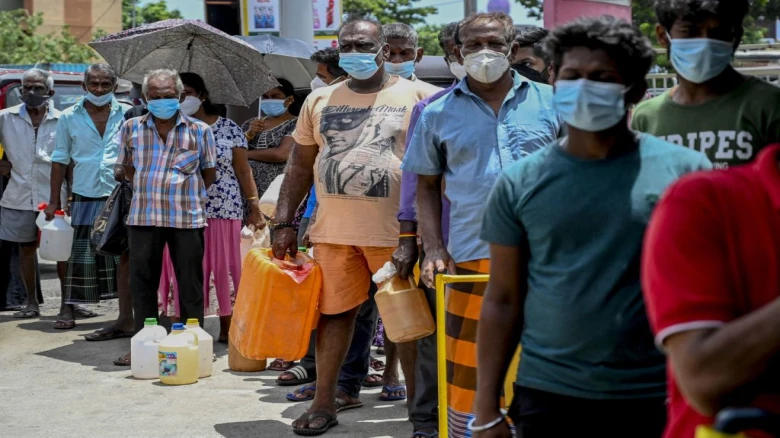According to UN News, WFP is warning that inadequate nutrition has serious effects on pregnant women, endangering both their own and their unborn children's health.
Digital Desk: The World Food Programme's (WFP) most recent assessment of food insecurity, which was issued on Wednesday, stated that around 6.26 million Sri Lankans, or three out of every ten households, are unsure of where their next meal will come from.
Approximately 61% of households routinely adopt cost-saving coping mechanisms, such as cutting back on their food intake and eating ever less nutrient-dense meals, as a result of record food price inflation, surging fuel prices, and widespread commodity shortages.
As the crisis worsens, the UN agency for food assistance expects that even more people will use similar coping mechanisms. One woman told WFP, "These days, we don't have a proper dinner; we simply eat rice and sauce."
According to UN News, WFP is warning that inadequate nutrition has serious effects on pregnant women, endangering both their own and their unborn children's health.
Anthea Webb, deputy regional director for Asia and the Pacific at the World Food Programme (WFP), stated last month that pregnant women "need to eat nutritious meals every day, yet the poorest find it harder and harder to afford the necessities."
She warned pregnant women against skipping meals because it "carries throughout your life," endangering both their own health and the wellbeing of their unborn children.
Two out of five homes now lack proper diets as a result of the population's crippled ability to prepare enough nutrient-rich meals in the face of a shocking 57.4% inflation rate and rapidly rising food prices.
In the farming estates sector, which includes huge tea plantations, where more than half of households experience food insecurity, the situation is severe, WFP reported.
According to WFP, Sri Lanka is currently experiencing its worst economic crisis since gaining independence in 1948. The crisis, which follows successive COVID-19 waves, threatens to undo years of development progress and seriously jeopardize the nation's ability to meet the Sustainable Development Goals (SDGs).
UN News reports that government offices and schools have been forced to close indefinitely due to a current oil supply deficit. The shortages have been exacerbated by decreased domestic agricultural production, a lack of foreign exchange reserves, and depreciating local currencies.
In addition to the 500,000 people who the World Bank estimates have dropped below the poverty line as a result of the pandemic, the economic crisis will push families into hunger and poverty, some for the first time.
The World Food Programme (WFP) announced a $60 million emergency appeal for food and nutrition to help three million of Sri Lanka's most vulnerable at risk citizens last month to address the deteriorating situation.
Notably, WFP director David Beasley tweeted, "We must act now before this turns into a humanitarian catastrophe.

Leave A Comment